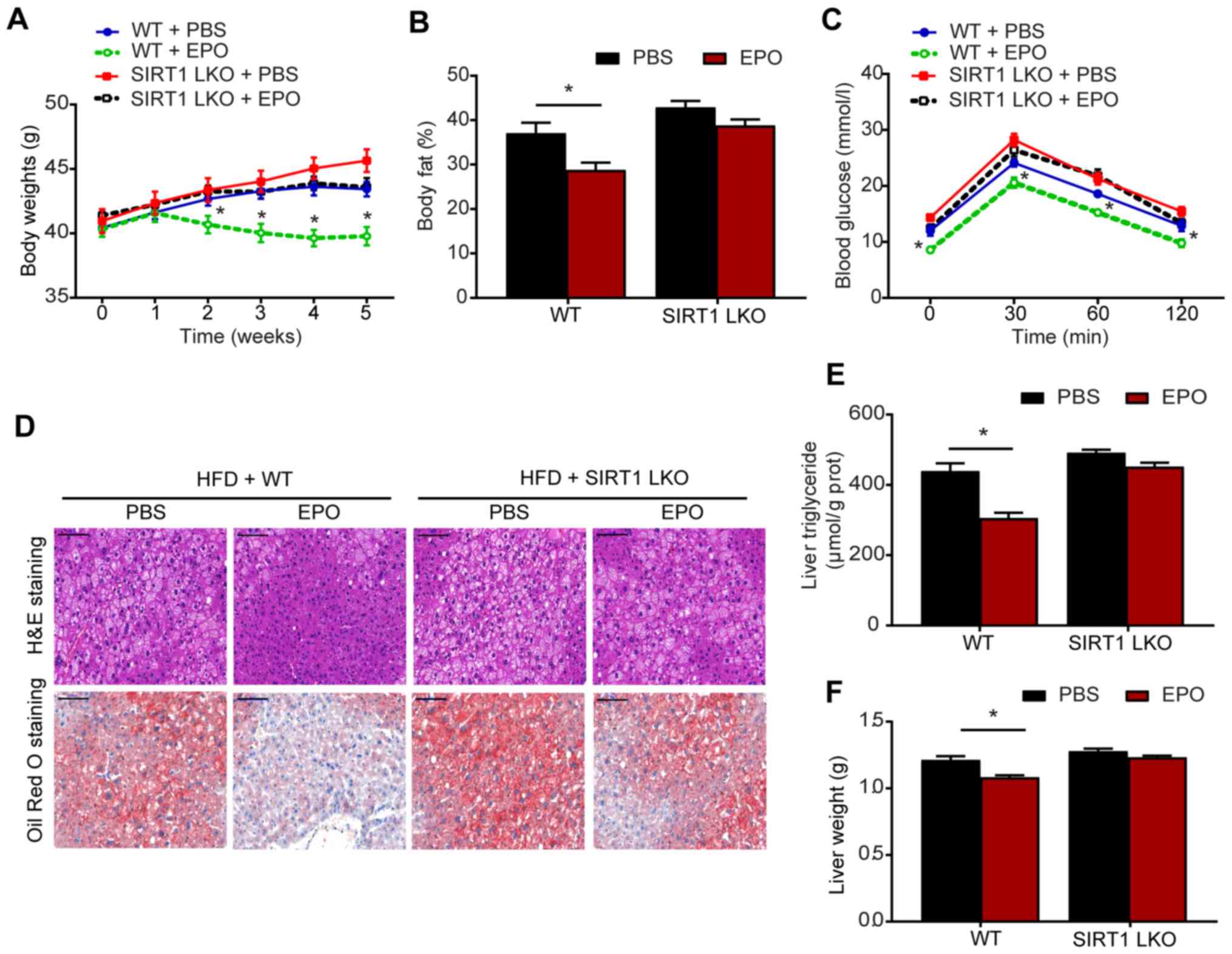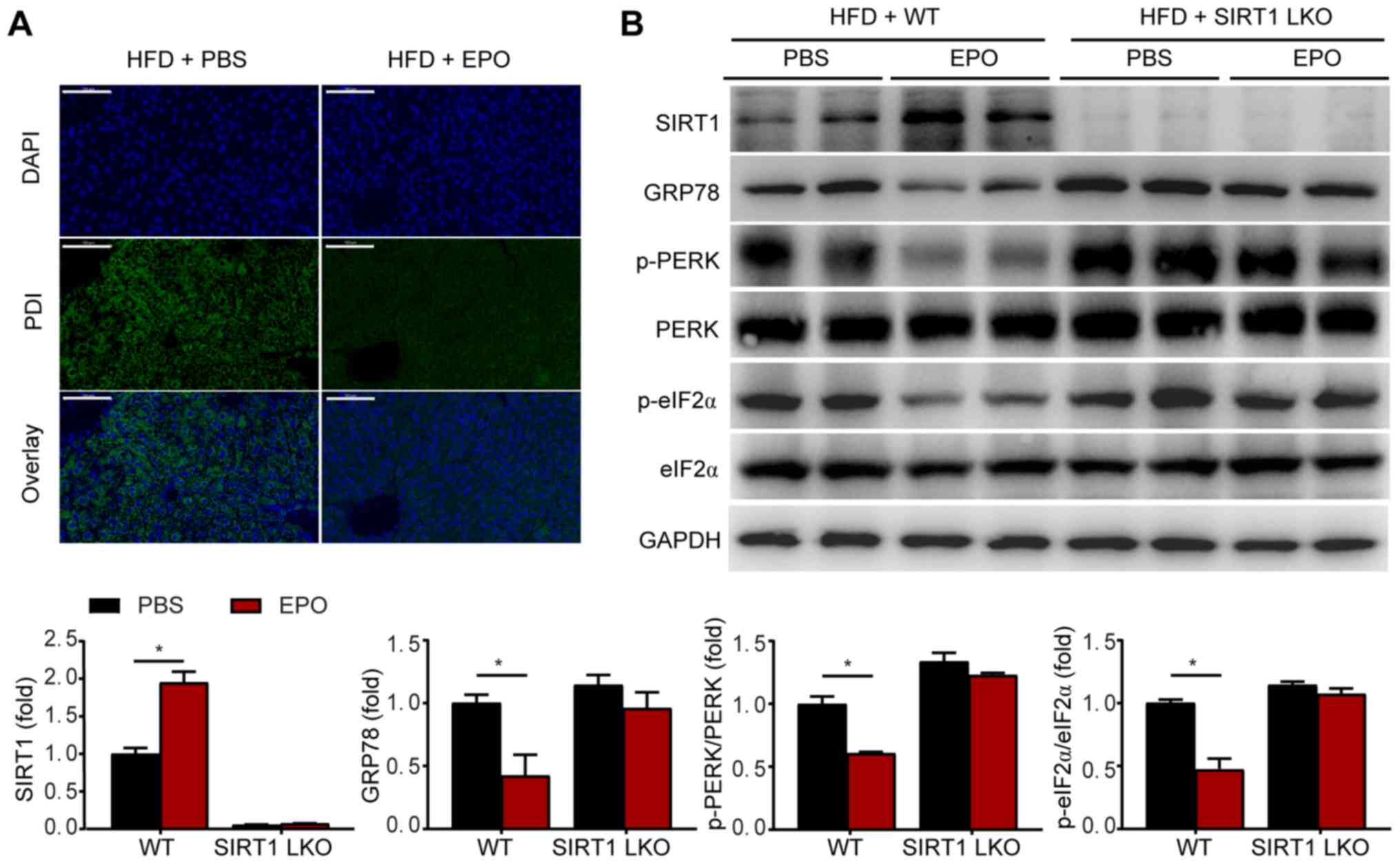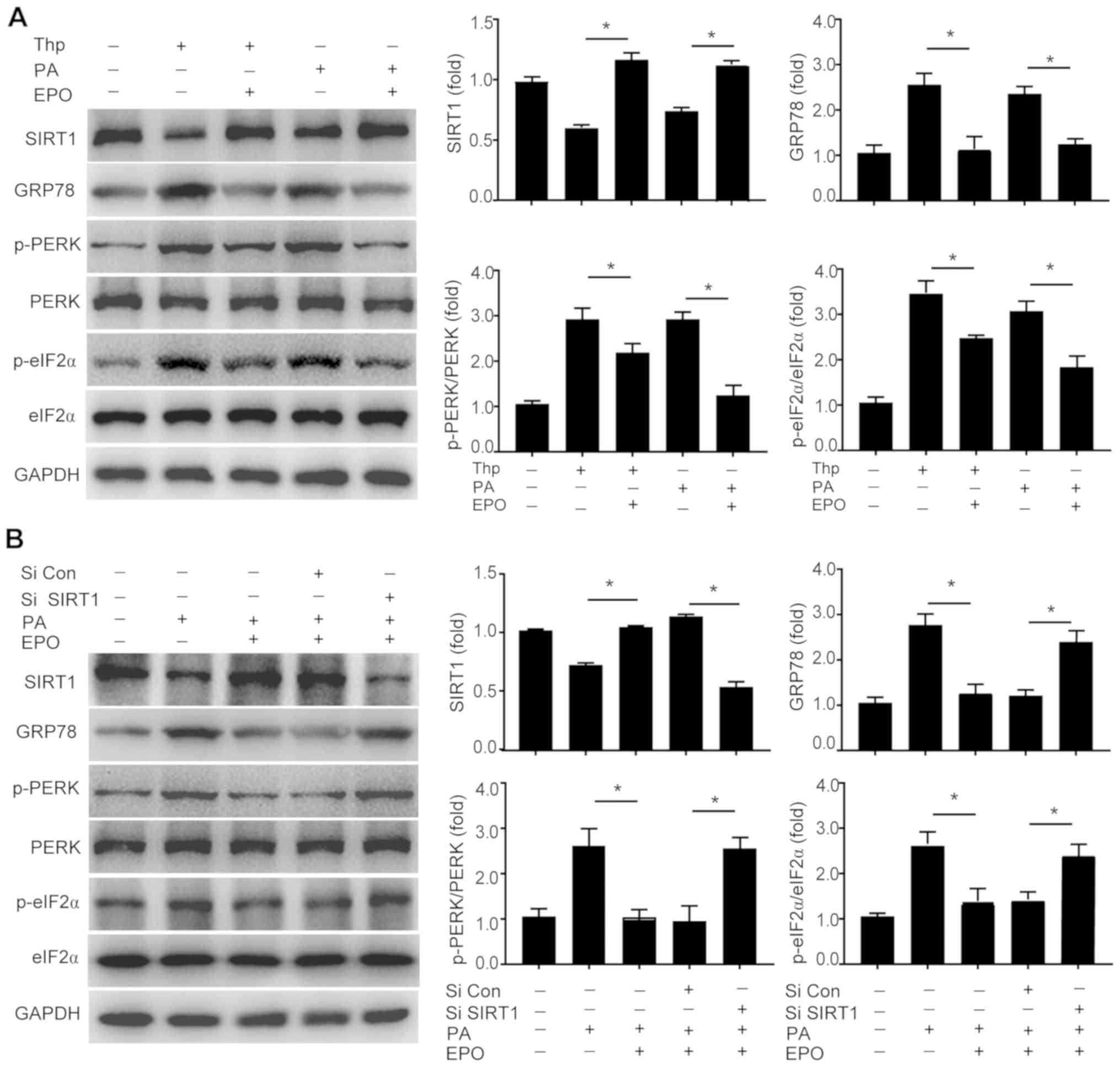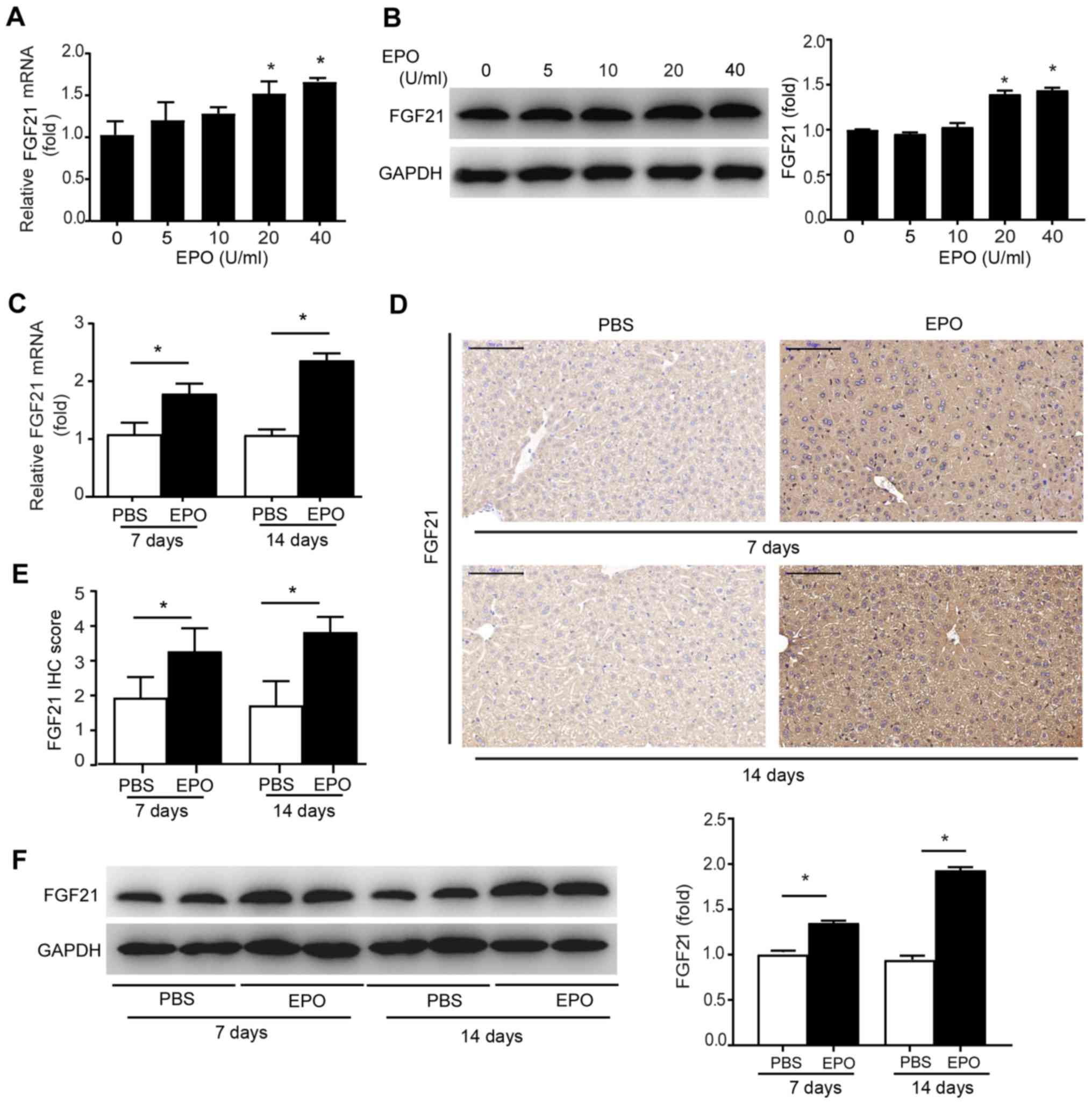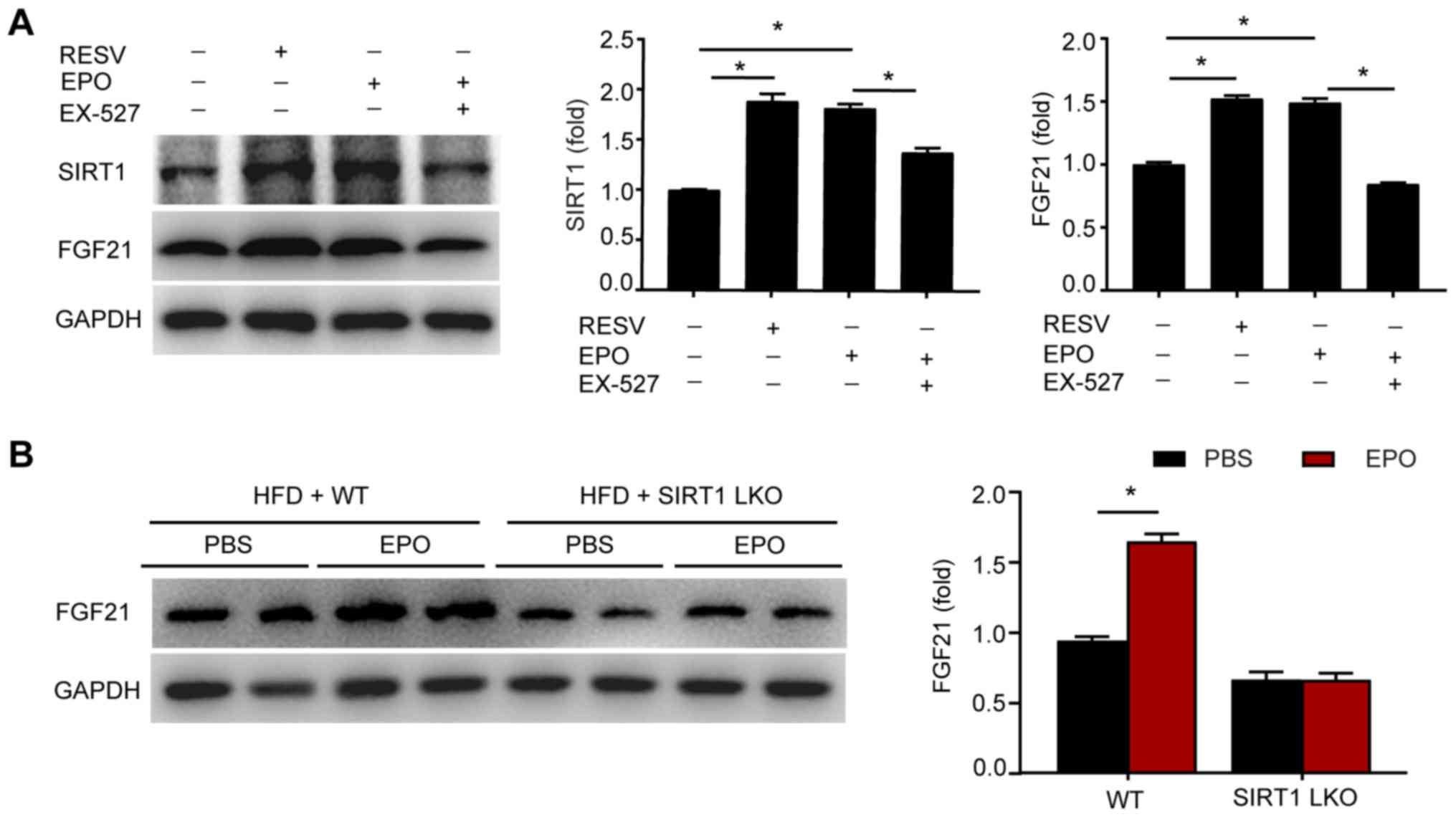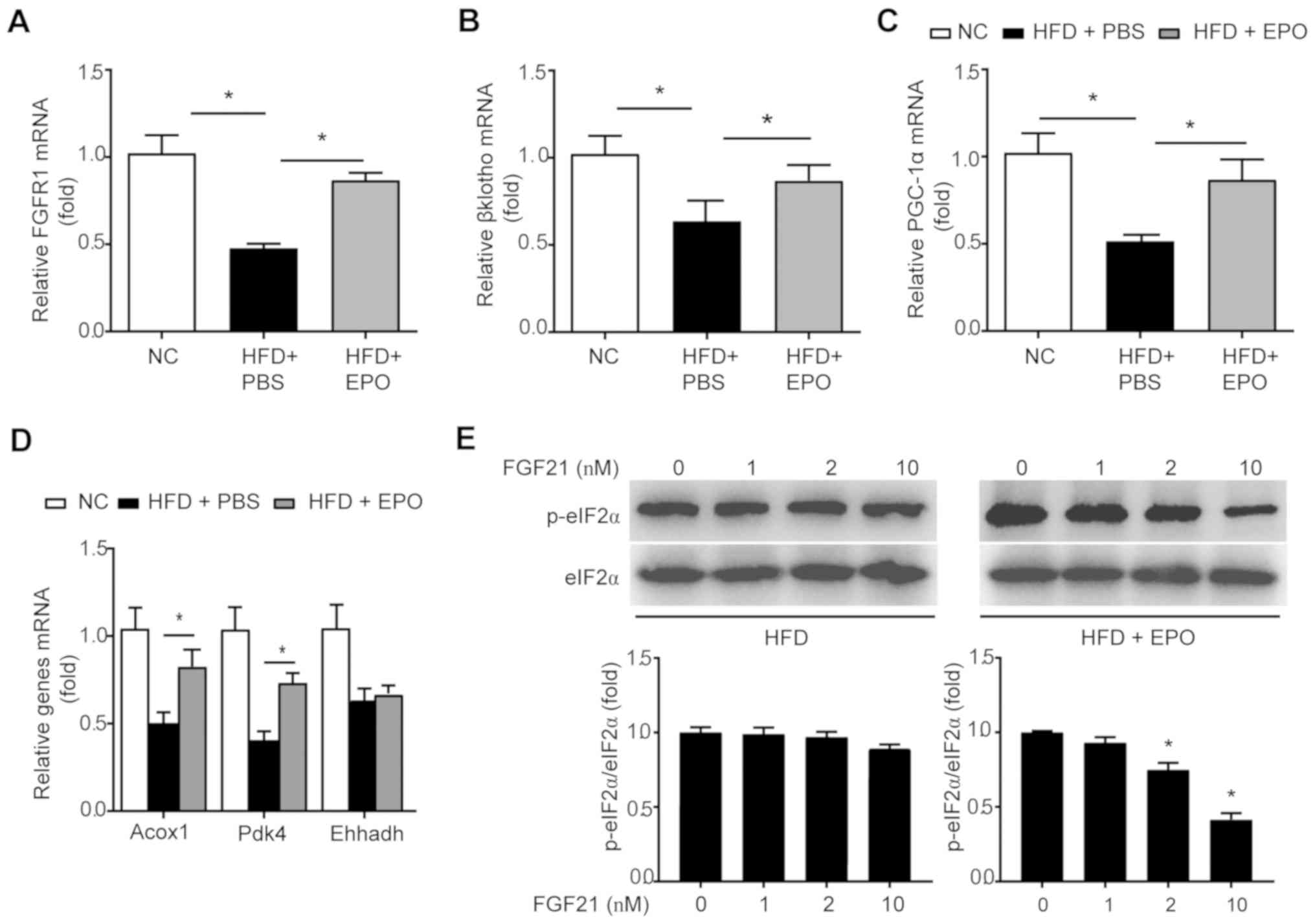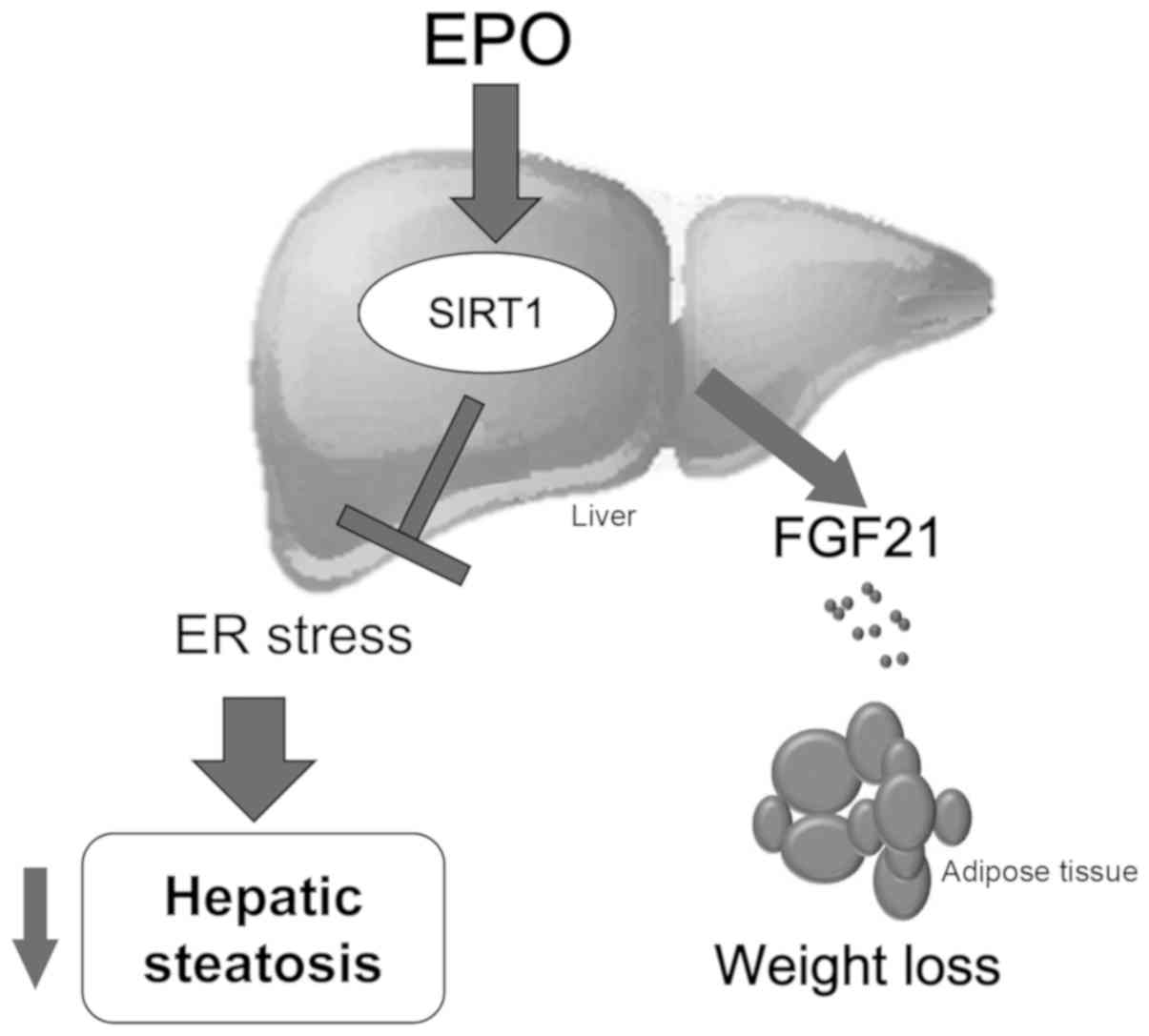|
1
|
Younossi Z, Anstee QM, Marietti M, Hardy
T, Henry L, Eslam M, George J and Bugianesi E: Global burden of
NAFLD and NASH: Trends, predictions, risk factors and prevention.
Nat Rev Gastroenterol Hepatol. 15:11–20. 2018. View Article : Google Scholar
|
|
2
|
Deng X, Pan X, Cheng C, Liu B, Zhang H,
Zhang Y and Xu K: Regulation of SREBP-2 intracellular trafficking
improves impaired autophagic flux and alleviates endoplasmic
reticulum stress in NAFLD. Biochim Biophys Acta Mol Cell Biol
Lipids. 1862:337–350. 2017. View Article : Google Scholar
|
|
3
|
Leamy AK, Egnatchik RA and Young JD:
Molecular mechanisms and the role of saturated fatty acids in the
progression of non-alcoholic fatty liver disease. Prog Lipid Res.
52:165–174. 2013. View Article : Google Scholar
|
|
4
|
Fu S, Watkins SM and Hotamisligil GS: The
role of endoplasmic reticulum in hepatic lipid homeostasis and
stress signaling. Cell Metab. 15:623–634. 2012. View Article : Google Scholar : PubMed/NCBI
|
|
5
|
Basseri S and Austin RC: ER stress and
lipogenesis: A slippery slope toward hepatic steatosis. Dev Cell.
15:795–796. 2008. View Article : Google Scholar : PubMed/NCBI
|
|
6
|
Ashraf NU and Sheikh TA: Endoplasmic
reticulum stress and Oxidative stress in the pathogenesis of
non-alcoholic fatty liver disease. Free Radic Res. 49:1405–1418.
2015. View Article : Google Scholar : PubMed/NCBI
|
|
7
|
Jang MK, Nam JS, Kim JH, Yun YR, Han CW,
Kim BJ, Jeong HS, Ha KT and Jung MH: Schisandra chinensis extract
ameliorates nonalcoholic fatty liver via inhibition of endoplasmic
reticulum stress. J Ethnopharmacol. 185:96–104. 2016. View Article : Google Scholar : PubMed/NCBI
|
|
8
|
Yien YY, Shi J, Chen C, Cheung JTM, Grillo
AS, Shrestha R, Li L, Zhang X, Kafina MD, Kingsley PD, et al:
FAM210B is an erythropoietin target and regulates erythroid heme
synthesis by controlling mitochondrial iron import and
ferrochelatase activity. J Biol Chem. 293:19797–19811. 2018.
View Article : Google Scholar : PubMed/NCBI
|
|
9
|
Jelkmann W: Erythropoietin: Back to
basics. Blood. 115:4151–4152. 2010. View Article : Google Scholar : PubMed/NCBI
|
|
10
|
She J, Yuan Z, Wu Y, Chen J and Kroll J:
Targeting erythropoietin protects against proteinuria in type 2
diabetic patients and in zebrafish. Mol Metab. 8:189–202. 2018.
View Article : Google Scholar :
|
|
11
|
Kodo K, Sugimoto S, Nakajima H, Mori J,
Itoh I, Fukuhara S, Shigehara K, Nishikawa T, Kosaka K and Hosoi H:
Erythropoietin (EPO) ameliorates obesity and glucose homeostasis by
promoting thermogenesis and endocrine function of classical brown
adipose tissue (BAT) in diet-induced obese mice. PLoS One.
12:e01736612017. View Article : Google Scholar : PubMed/NCBI
|
|
12
|
Caillaud C, Connes P, Ben Saad H and
Mercier J: Erythropoietin enhances whole body lipid oxidation
during prolonged exercise in humans. J Physiol Biochem. 71:9–16.
2015. View Article : Google Scholar : PubMed/NCBI
|
|
13
|
Hojman P, Brolin C, Gissel H, Brandt C,
Zerahn B, Pedersen BK and Gehl J: Erythropoietin over-expression
protects against diet-induced obesity in mice through increased fat
oxidation in muscles. PLoS One. 4:e58942009. View Article : Google Scholar : PubMed/NCBI
|
|
14
|
Ge Z, Zhang P, Hong T, Tang S, Meng R, Bi
Y and Zhu D: Erythropoietin alleviates hepatic insulin resistance
via PPARγ-dependent AKT activation. Sci Rep. 5:178782015.
View Article : Google Scholar
|
|
15
|
Hong T, Ge Z, Meng R, Wang H, Zhang P,
Tang S, Lu J, Gu T, Zhu D and Bi Y: Erythropoietin alleviates
hepatic steatosis by activating SIRT1-mediated autophagy. Biochim
Biophys Acta Mol Cell Biol Lipids. 1863:595–603. 2018. View Article : Google Scholar : PubMed/NCBI
|
|
16
|
Sathyanarayan A, Mashek MT and Mashek DG:
ATGL promotes autophagy/lipophagy via SIRT1 to control hepatic
lipid droplet catabolism. Cell Rep. 19:1–9. 2017. View Article : Google Scholar : PubMed/NCBI
|
|
17
|
Kong Q, Zhang H, Zhao T, Zhang W, Yan M,
Dong X and Li P: Tangshen formula attenuates hepatic steatosis by
inhibiting hepatic lipogenesis and augmenting fatty acid oxidation
in db/db mice. Int J Mol Med. 38:1715–1726. 2016. View Article : Google Scholar : PubMed/NCBI
|
|
18
|
Li Y, Xu S, Giles A, Nakamura K, Lee JW,
Hou X, Donmez G, Li J, Luo Z, Walsh K, et al: Hepatic
overexpression of SIRT1 in mice attenuates endoplasmic reticulum
stress and insulin resistance in the liver. FASEB J. 25:1664–1679.
2011. View Article : Google Scholar : PubMed/NCBI
|
|
19
|
Pan Q, Ren Y, Liu W, Hu Y, Zheng J, Xu Y
and Wang G: Resveratrol prevents hepatic steatosis and endoplasmic
reticulum stress and regulates the expression of genes involved in
lipid metabolism, insulin resistance, and inflammation in rats.
Nutr Res. 35:576–584. 2015. View Article : Google Scholar : PubMed/NCBI
|
|
20
|
Kang X, Yang W, Wang R, Xie T, Li H, Feng
D, Jin X, Sun H and Wu S: Sirtuin-1 (SIRT1) stimulates growth-plate
chondrogenesis by attenuating the PERK-eIF-2α-CHOP pathway in the
unfolded protein response. J Biol Chem. 293:8614–8625. 2018.
View Article : Google Scholar : PubMed/NCBI
|
|
21
|
Li Y, Wong K, Giles A, Jiang J, Lee JW,
Adams AC, Kharitonenkov A, Yang Q, Gao B, Guarente L and Zang M:
Hepatic SIRT1 attenuates hepatic steatosis and controls energy
balance in mice by inducing fibroblast growth factor 21.
Gastroenterology. 146:539–549.e7. 2014. View Article : Google Scholar :
|
|
22
|
Han HS, Choi BH, Kim JS, Kang G and Koo
SH: Hepatic Crtc2 controls whole body energy metabolism via a
miR-34a-Fgf21 axis. Nat Commun. 8:18782017. View Article : Google Scholar : PubMed/NCBI
|
|
23
|
Zheng Q, Tong M, Ou B, Liu C, Hu C and
Yang Y: Isorhamnetin protects against bleomycin-induced pulmonary
fibrosis by inhibiting endoplasmic reticulum stress and
epithelial-mesenchymal transition. Int J Mol Med. 43:117–126.
2019.
|
|
24
|
Varghese F, Bukhari AB, Malhotra R and De
A: IHC Profiler: An open source plugin for the quantitative
evaluation and automated scoring of immunohistochemistry images of
human tissue samples. PLoS One. 9:e968012014. View Article : Google Scholar : PubMed/NCBI
|
|
25
|
Shah KN, Bhatt R, Rotow J, Rohrberg J,
Olivas V, Wang VE, Hemmati G, Martins MM, Maynard A, Kuhn J, et al:
Aurora kinase A drives the evolution of resistance to
third-generation EGFR inhibitors in lung cancer. Nat Med.
25:111–118. 2019. View Article : Google Scholar
|
|
26
|
Seglen PO: Hepatocyte suspensions and
cultures as tools in experimental carcinogenesis. J Toxicol Environ
Health. 5:551–560. 1979. View Article : Google Scholar : PubMed/NCBI
|
|
27
|
Livak KJ and Schmittgen TD: Analysis of
relative gene expression data using real-time quantitative PCR and
the 2(−Delta Delta C(T)) method. Methods. 25:402–408. 2001.
View Article : Google Scholar
|
|
28
|
Zhang W, Sun Y, Liu W, Dong J and Chen J:
SIRT1 mediates the role of RNA-binding protein QKI 5 in the
synthesis of triglycerides in non-alcoholic fatty liver disease
mice via the PPARα/FoxO1 signaling pathway. Int J Mol Med.
43:1271–1280. 2019.PubMed/NCBI
|
|
29
|
Babaknejad N, Nayeri H, Hemmati R, Bahrami
S and Esmaillzadeh A: An overview of FGF19 and FGF21: The
therapeutic role in the treatment of the metabolic disorders and
obesity. Horm Metab Res. 50:441–452. 2018. View Article : Google Scholar : PubMed/NCBI
|
|
30
|
Fisher FM, Chui PC, Antonellis PJ, Bina
HA, Kharitonenkov A, Flier JS and Maratos-Flier E: Obesity is a
fibroblast growth factor 21 (FGF21)-resistant state. Diabetes.
59:2781–2789. 2010. View Article : Google Scholar : PubMed/NCBI
|
|
31
|
Gasparin FRS, Carreño FO, Mewes JM,
Gilglioni EH, Pagadigorria CLS, Natali MRM, Utsunomiya KS,
Constantin RP, Ouchida AT, Curti C, et al: Sex differences in the
development of hepatic steatosis in cafeteria diet-induced obesity
in young mice. Biochim Biophys Acta Mol Basis Dis. 1864:2495–2509.
2018. View Article : Google Scholar : PubMed/NCBI
|
|
32
|
Henkel AS: Unfolded protein response
sensors in hepatic lipid metabolism and nonalcoholic fatty liver
disease. Semin Liver Dis. 38:320–332. 2018. View Article : Google Scholar : PubMed/NCBI
|
|
33
|
Rutkowski DT, Wu J, Back SH, Callaghan MU,
Ferris SP, Iqbal J, Clark R, Miao H, Hassler JR, Fornek J, et al:
UPR pathways combine to prevent hepatic steatosis caused by ER
stress-mediated suppression of transcriptional master regulators.
Dev Cell. 15:829–840. 2008. View Article : Google Scholar : PubMed/NCBI
|
|
34
|
Oyadomari S, Harding HP, Zhang Y,
Oyadomari M and Ron D: Dephosphorylation of translation initiation
factor 2alpha enhances glucose tolerance and attenuates
hepatosteatosis in mice. Cell Metab. 7:520–532. 2008. View Article : Google Scholar : PubMed/NCBI
|
|
35
|
Kong D, Zhuo L, Gao C, Shi S, Wang N,
Huang Z, Li W and Hao L: Erythropoietin protects against
cisplatin-induced nephrotoxicity by attenuating endoplasmic
reticulum stress-induced apoptosis. J Nephrol. 26:219–227. 2013.
View Article : Google Scholar
|
|
36
|
Lu J, Dai Q, Ma G, Zhu Y, Chen B, Li B and
Yao Y: Erythropoietin attenuates cardiac dysfunction in rats by
inhibiting endoplasmic reticulum stress-induced diabetic
cardiomyopathy. Cardiovasc Drugs Ther. 31:367–379. 2017. View Article : Google Scholar : PubMed/NCBI
|
|
37
|
Jung TW, Lee KT, Lee MW and Ka KH: SIRT1
attenuates palmitate-induced endoplasmic reticulum stress and
insulin resistance in HepG2 cells via induction of oxygen-regulated
protein 150. Biochem Biophys Res Commun. 422:229–232. 2012.
View Article : Google Scholar : PubMed/NCBI
|
|
38
|
Matsui S, Sasaki T, Kohno D, Yaku K,
Inutsuka A, Yokota- Hashimoto H, Kikuchi O, Suga T, Kobayashi M,
Yamanaka A, et al: Neuronal SIRT1 regulates macronutrient-based
diet selection through FGF21 and oxytocin signalling in mice. Nat
Commun. 9:46042018. View Article : Google Scholar : PubMed/NCBI
|
|
39
|
Jimenez V, Jambrina C, Casana E, Sacristan
V, Muñoz S, Darriba S, Rodó J, Mallol C, Garcia M, Leó X, et al:
FGF21 gene therapy as treatment for obesity and insulin resistance.
EMBO Mol Med. 10:pii: e8791. 2018. View Article : Google Scholar : PubMed/NCBI
|
|
40
|
Liu M, Cao H, Hou Y, Sun G, Li D and Wang
W: Liver plays a major role in FGF-21 mediated glucose homeostasis.
Cell Physiol Biochem. 45:1423–1433. 2018. View Article : Google Scholar : PubMed/NCBI
|
|
41
|
Fisher FM, Kleiner S, Douris N, Fox EC,
Mepani RJ, Verdeguer F, Wu J, Kharitonenkov A, Flier JS,
Maratos-Flier E and Spiegelman BM: FGF21 regulates PGC-1α and
browning of white adipose tissues in adaptive thermogenesis. Genes
Dev. 26:271–281. 2012. View Article : Google Scholar : PubMed/NCBI
|
|
42
|
Dushay J, Chui PC, Gopalakrishnan GS,
Varela-Rey M, Crawley M, Fisher FM, Badman MK, Martinez-Chantar ML
and Maratos-Flier E: Increased fibroblast growth factor 21 in
obesity and nonalcoholic fatty liver disease. Gastroenterology.
139:456–463. 2010. View Article : Google Scholar : PubMed/NCBI
|
|
43
|
Rusli F, Deelen J, Andriyani E,
Boekschoten MV, Lute C, van den Akker EB, Müller M, Beekman M and
Steegenga WT: Fibroblast growth factor 21 reflects liver fat
accumulation and dysregulation of signalling pathways in the liver
of C57BL/6J mice. Sci Rep. 6:304842016. View Article : Google Scholar : PubMed/NCBI
|
|
44
|
Jiang S, Yan C, Fang QC, Shao ML, Zhang
YL, Liu Y, Deng YP, Shan B, Liu JQ, Li HT, et al: Fibroblast growth
factor 21 is regulated by the IRE1α-XBP1 branch of the unfolded
protein response and counteracts endoplasmic reticulum
stress-induced hepatic steatosis. J Biol Chem. 289:29751–29765.
2014. View Article : Google Scholar : PubMed/NCBI
|
|
45
|
Ye M, Lu W, Wang X, Wang C, Abbruzzese JL,
Liang G, Li X and Luo Y: FGF21-FGFR1 coordinates phospholipid
homeostasis, lipid droplet function, and ER stress in obesity.
Endocrinology. 157:4754–4769. 2016. View Article : Google Scholar : PubMed/NCBI
|















